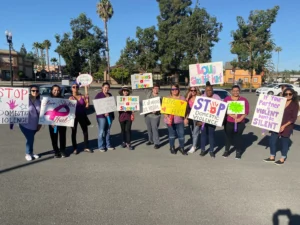Homelessness is influenced by more factors than you may realize. While financial distress, a lack of affordable housing, and violencia doméstica are all drivers of homelessness, there are many other sides to the story. Here’s how mental illness and substance abuse affect the homeless population, and how homelessness, substance abuse, and mental illness can be a perfect storm of hardship.
What Is Mental Illness?
Mental illnesses are mental health disorders that affect the way you think, behave, and feel. Ongoing symptoms can negatively affect the way you function in your day-to-day life. While the impacts of mental illness vary depending on the type of disorder, some common effects of mental illness incluyen:
-
Feeling sad or down
-
Confused thinking or reduced ability to concentrate
-
Excessive fears or worries, or extreme feelings of guilt
-
Extreme mood changes of highs and lows
-
Withdrawal from friends and activities
-
Significant tiredness, low energy, or problems sleeping
-
Detachment from reality (delusions), paranoia, or hallucinations
-
Inability to cope with daily problems or stress
-
Trouble understanding and relating to situations and to people
-
Excessive anger, hostility, or violence
Common mental illnesses are depression and anxiety disorders, which affect 40 million US adults each year. Other mental illnesses include bipolar disorder, post-traumatic stress disorder (PTSD), schizophrenia, and various eating disorders.
While these illnesses affect the lives of many Americans, mental illness is disproportionately present in the homeless population. Studies have estimated that at least 25% of the American homeless population is “seriously mentally ill at any given point in time.” Furthermore, it’s estimated that 45% of the homeless population in the US has a mental illness.
What Is Substance Abuse?
Substance abuse, also known as drug abuse or substance use disorder, is “a disease that affects a person’s brain and behavior and leads to an inability to control the use of a legal or illegal drug or medicine.” People experiencing a substance use disorder may continue to use a particular substance despite the negative effects it has on their lives. Addiction can negatively impact one’s finances, relationships, career, health, lifestyle, and more.
En effects of substance abuse on physical health can include:
-
A weakened immune system, increasing the risk of illness and infection
-
Heart conditions ranging from abnormal heart rates to heart attacks and collapsed veins and blood vessel infections from injected drugs
-
Nausea and abdominal pain, which can also lead to changes in appetite and weight loss
-
Increased strain on the liver, which puts the person at risk of significant liver damage or liver failure
-
Seizures, stroke, mental confusion and brain damage
-
Lung disease
-
Problems with memory, attention and decision-making, which make daily living more difficult
Additionally, substance use disorders have widespread effects on behavior. They can lead to such behavioral problems as:
-
Paranoia
-
Aggressiveness
-
Hallucinations
-
Addiction
-
Impaired judgment
-
Impulsiveness
-
Loss of self-control
Again, the homeless population is disproportionately affected by substance use disorders. Studies have shown that “substance abuse is more prevalent in people who are homeless than in those who are not,” and that “in many instances, substance abuse is the result of the stress of homelessness, rather than the other way around.” The impacts of substance abuse then create additional problems that make it more difficult to come back from homelessness. This perpetuates a vicious cycle of homelessness, mental illness, and substance abuse.
Mental Illness and Substance Abuse in the Homeless Population
As we’ve seen above, both mental illness and substance abuse are major issues for the homeless population. The interconnection of these problems—known as tri-occurring substance abuse, mental illness, and homelessness—can be a tragic loop.
Mental illness can disrupt a person’s daily functioning and ability to maintain social support, and can therefore push people into homelessness. The stress and health effects of homelessness, in turn, can exacerbate mental illness and heighten the risk of substance abuse. Finally, substance abuse and worsened mental health create further barriers to rising out of homelessness.
These interrelated effects help explain why homelessness cannot be solved with housing alone, or any one-sided approach. People experiencing homelessness may need assistance in overcoming substance use and mental health disorders, along with other complications. That’s why here at Crisis House, we have a suite of programs dedicated to helping people experiencing homelessness. Our East County Housing Connections (ECHC), Project Homeless Connect, and our annual Point-in-Time Count all work together to help us effectively and intentionally change lives.
En Crisis House, estamos aquí durante estos momentos estresantes para apoyar a las familias con nuestros servicios y recursos. Proporcionamos intervención en crisis, vivienda transitoria y permanente, y servicios para familias y niños que huyen de la violencia doméstica. Somos líderes en servicios críticos en East County, San Diego, administrando programas para individuos y familias que experimentan violencia doméstica y falta de vivienda.
Vea nuestro impacto y ayúdanos a llegar a los necesitados donando o trabajando como voluntario hoy mismo. También puedes suscribirte a nuestro boletín de noticias para estar al tanto de cómo trabajamos para poner en contacto a familias, niños y personas con recursos cruciales. Juntos, podemos detener el ciclo de la violencia doméstica, el maltrato infantil y la falta de vivienda, y capacitar a las personas para que renueven sus vidas.







